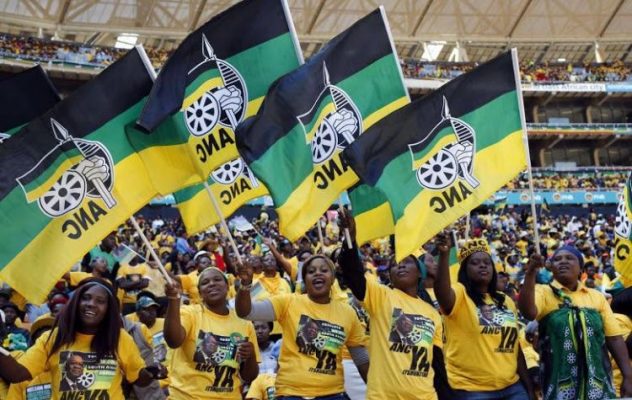South Africa’s Ruling ANC Marks 112th Anniversary
South Africa’s ruling African National Congress party will celebrate Saturday the 112th anniversary of its establishment ahead of national elections, expected to be the toughest since it came to power in 1994.
Thousands of party members and supporters are expected to convene in Mbombela Stadium in the Mpumalanga province where President Cyril Ramaphosa, also the head of ANC, will deliver his annual address and outline the party’s program for the year.
The ANC is the party of South Africa’s first democratically-elected president and anti-apartheid leader Nelson Mandela. It was at the forefront of the country’s liberation struggle against racial segregation and the white minority government.
Ramaphosa is seeking a second term in this year’s elections after coming to power in 2019, succeeding Jacob Zuma.
The ANC has been facing widespread criticism for failing to deliver basic services to millions of the country’s poor Black majority amid deteriorating economic conditions. With an unemployment rate of around 32% — of which 60% are young people — the party is set to face a disillusioned electorate that is running out of patience with unfulfilled promises of a better life.
Some election polls suggested the party may struggle to gain more than 50% of the electoral vote, needed to clinch the win, for the first time in its 30-year reign.
The ruling party’s reputation has also taken a hit due to various allegations of corruption over the years, with many of its leaders implicated in shady governmnet deals.
Added to the economic challenges, South Africans regularly suffer from power blackouts as Eskom, the country’s main energy supplier, has been failing to supply millions of households and companies with uninterrupted electricity.
Political analyst at the University of South Africa, Dirk Kotze, told The Associated Press that the ANC’s biggest threat was not from the opposition gaining more support, but “from the fact that people do not want to vote for them because of the distrust that has developed in the ANC.”
“This will not be one of the toughest elections for, it will be the toughest they have ever contested,” said Kotze.
In the 2019 elections that saw Ramaphosa elected, the ANC gained 57.5% of the vote, a far cry from the nearly 70% it garnered in the 2004 general elections.
Last December, former President Zuma denounced the ANC and pledged his support to a newly-formed political party, Umkhonto we Sizwe, or Spear of the Nation, encouraging his supporters to vote for it in this year’s election.
Though it is unclear how much backing Umkhonto we Sizwe may get at the polls, a break-away party is likely to hurt the ANC as it did in previous elections with the formation of the Congress of the People in 2008 and the Economic Freedom Fighters in 2013. Both parties drew some of the ANC leaders and supporters, further contributing to the ruling party’s gradual erosion of electoral support.
The establishment of both parties saw some former ANC leaders and members leave the ANC to join them, contributing to the ANC’s gradual electoral support in previous elections”.
However, Kotze said the newly established party would likely have a bigger impact in the KwaZulu-Natal province, where Zuma hails from and continues to enjoy support.
“I think in terms of the new MK party, the ANC is more worried about KwaZulu-Natal, where it is almost a foregone conclusion that they will dip below 50%,” he said.
Zuma was jailed for defying a court order to testify in an inquiry investigating corruption during his presidential term from 2009 to 2018, and was released in 2022.
He is currently on trial for a 1999 weapons deal where he is accused of receiving bribes from French arms manufacturer Thales, and has pleaded not guilty to the charges.
If the ANC fails to garner more than 50%, it may be forced to enter a coalition agreement with some opposition parties.
The date for the elections is yet to be announced but is expected between May and August this year.
African news/Jide Johnson.


Comments are closed.